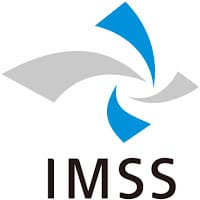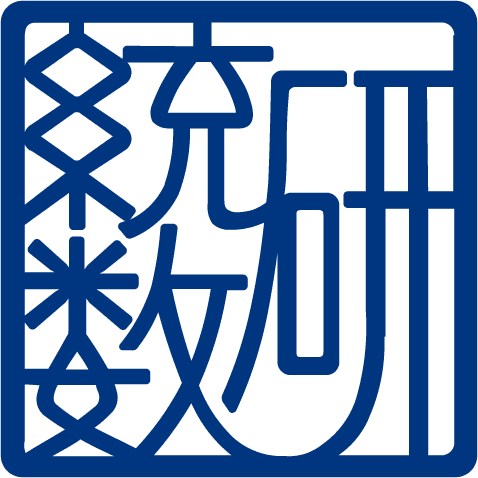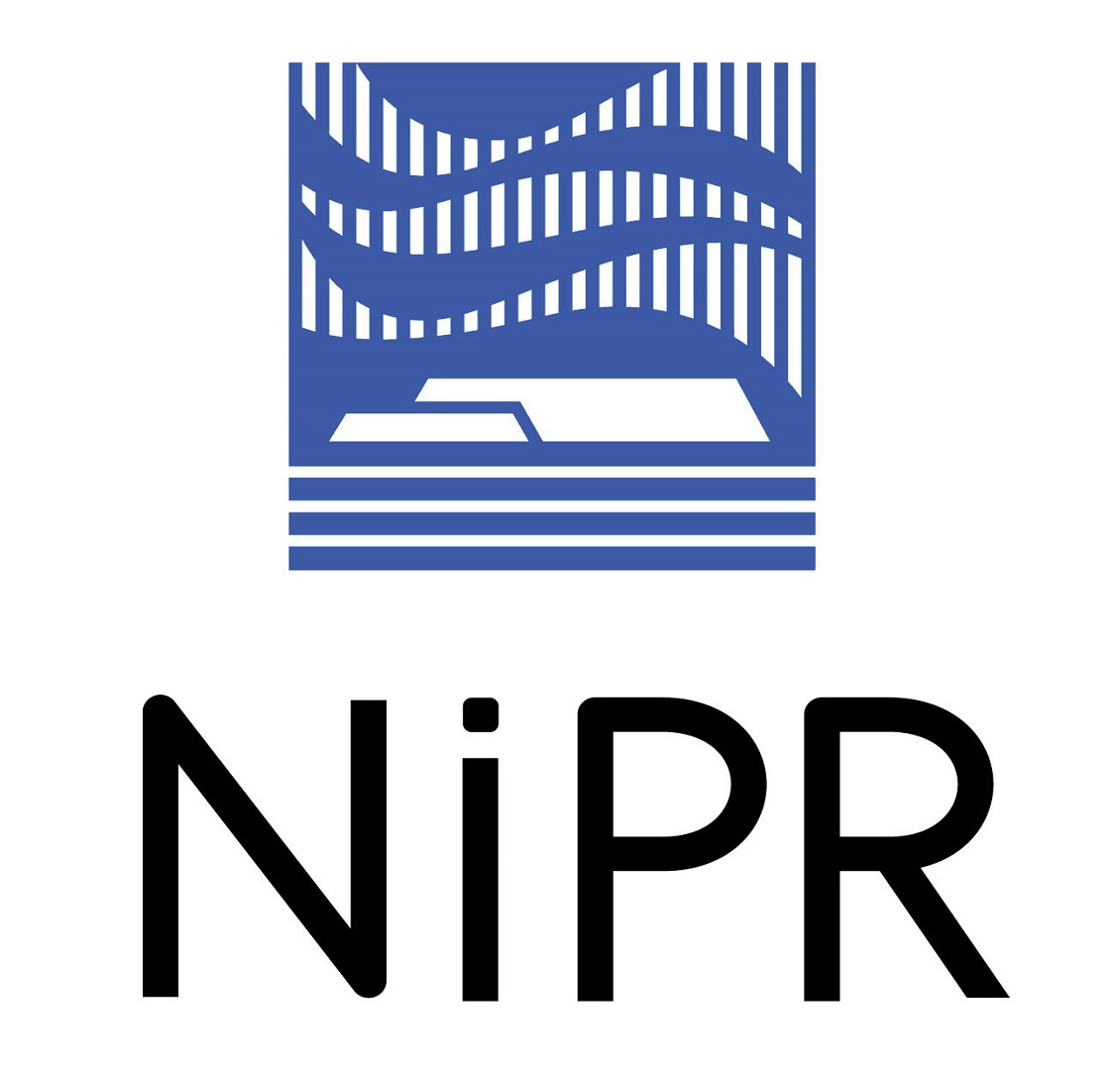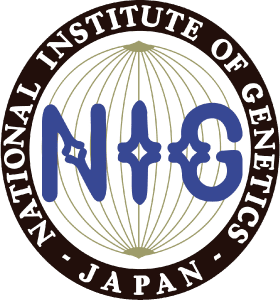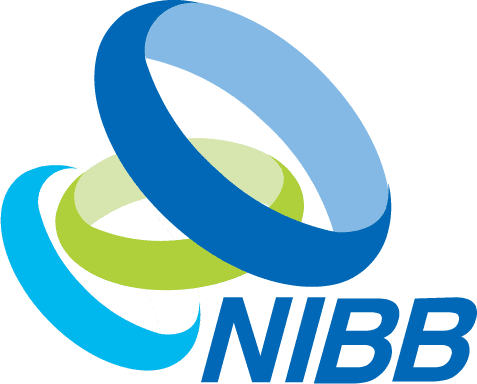About SOKENDAI

Features of SOKENDAI
SOKENDAI nurtures researchers at world-class research institutes.
The Graduate University for Advanced Studies, SOKENDAI, is an independent graduate university (the first of its kind as a national university in Japan) founded in 1988 with the aim of contributing to the creation and development of culture through education and research in academic theory and application. As a world-leading international graduate university, SOKENDAI operates in close partnership and collaboration with affiliated inter-university research institutes.
The role of the inter-university research institutes and the world-class research environment they offer as centers of educational excellence is one of the most distinctive features of SOKENDAI.
The inter-university research institutes (parent institutes) provide researchers from universities across Japan with resources (e.g., large-scale facilities and equipment, large amount of data, and valuable materials, etc.) that are not available in ordinary universities, and play a leading role in advancing scientific research in Japan through joint research with researchers nationwide and abroad.
SOKENDAI employs a large group of researchers from various research fields as faculty members to provide advanced specialized education within the excellent research environment provided by such parent institutes.
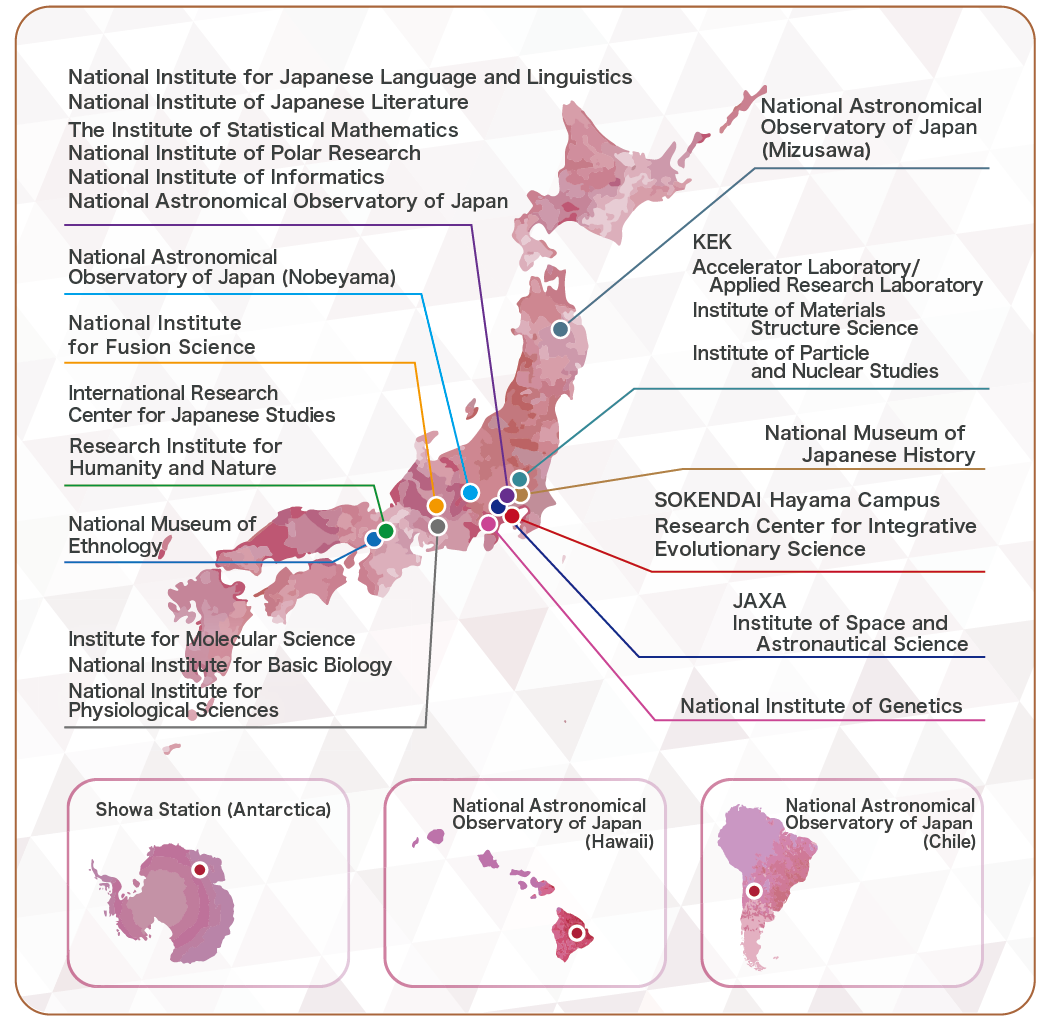
Nurturing independent researchers
SOKENDAI has 20 programs in collaboration with the inter-university research institutes (parent institutes) under Graduate Institute for Advanced Studies. This provides an educational environment transcending academic boundaries and flexibly offering the diverse educational resources of the inter-university research institutes. SOKENDAI fosters independent researchers with “Advanced Specialty and Expertise”, “Broad Perspective” and “International Competitiveness” backed by five competencies.

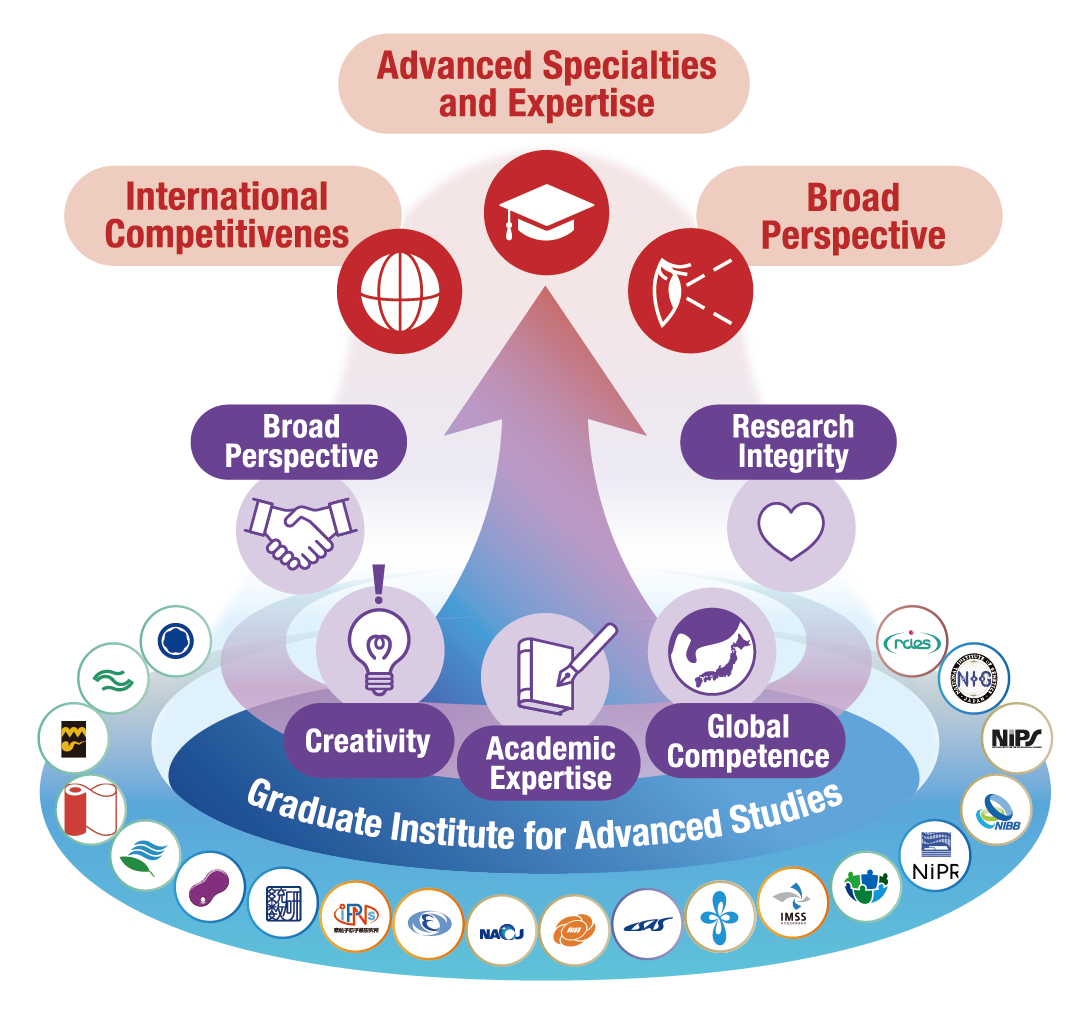
Academic Expertise
Ability to acquire the knowledge and methodologies available in the academic field and apply them to promote advanced research.
Creativity
Ability to deeply understand phenomena through research, tackle unexplored issues based on freeideas, and create new intellectual value.
Broad Perspective
Ability to work on issues in surrounding areas from an broad perspective and contribute to the progress of a wide range of academic fields, based on oneʼs own expertise.
Global Competence
Ability to disseminate highly universal academic results based on understanding and collaboration regardless of country, region, language, culture, gender, religion, etc.
Research Integrity
Ability to recognize the social significance and position of academic research and act ethically and responsibly as a researcher.
Doctoral Program
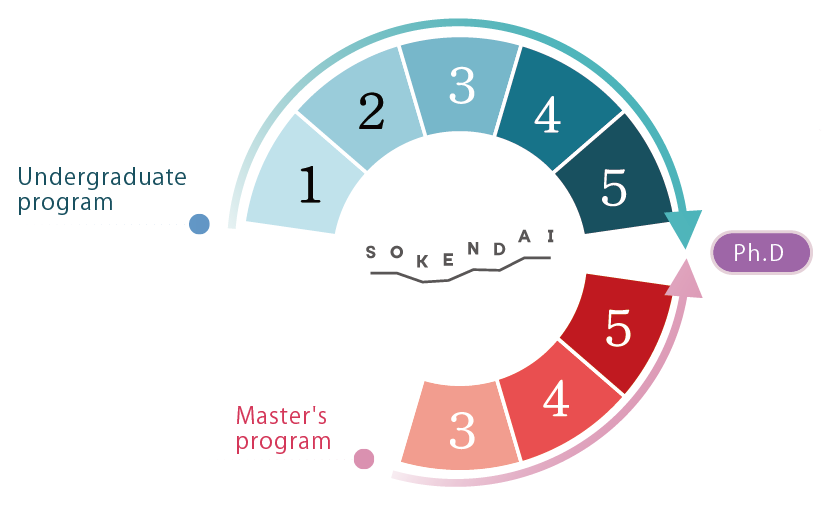
SOKENDAI in Figures
-

- 2020 parent institutions and 20 programs.
- The Graduate Institute for Advanced Studies offers 20 programs with the support of parent institutes. It provides an educational environment that transcends the conventional disciplinary boundaries and allows for the more flexible use of the diverse educational resources of the parent institutes for all teaching staff and the student body.
-
- About75%Approximately 75% of SOKENDAI students are researchers 10 years after their graduation
- Approximately 75% of students who completed their doctoral programs between 2001 and 2008 have pursued a career in research (from the 2020 SOKENDAI FACT BOOK).
-
- About30%Approximately 30% of the students are international students.
- International students account for approximately 30% of the SOKENDAI student body (as of May 1, 2022).
Graduate Institute for Advanced Studies
SOKENDAI has fostered highly-specialized PhDs using the world’s most advanced research centers as educational sites.
To nurture PhDs who can tackle complex and interdependent issues arising in the context of ever-changing academic trends and the ever more pressing demands of modern society, it is necessary to develop a system that allows the flexible use of highly specialized resources across a wide range of disciplines.
To achieve this goal, SOKENDAI has reorganized its educational structure and established the Graduate Institute for Advanced Studies on April 1, 2023. At the same time, the National Institute for Japanese Language and Linguistics and the Research Institute for Humanity and Nature were incorporated into SOKENDAI as parent institutes to further enhance the educational environment.
The Graduate Institute for Advanced Studies offers 20 programs with the support of parent institutes. As such, SOKENDAI provides an educational environment that transcends the conventional disciplinary boundaries and allows for the more flexible use of the diverse educational resources of the parent institutes for all teaching staff and the student body.
20 programs
| Course | Research Institutes | Image |
|---|---|---|
| Anthropological Studies | National Museum of Ethnology |  |
| Japanese Studies | International Research Center for Japanese Studies |  |
| Japanese History | National Museum of Japanese History |  |
| Japanese Literature | National Institute of Japanese Literature |  |
| Japanese Language Sciences | National Institute for Japanese Language and Linguistics | 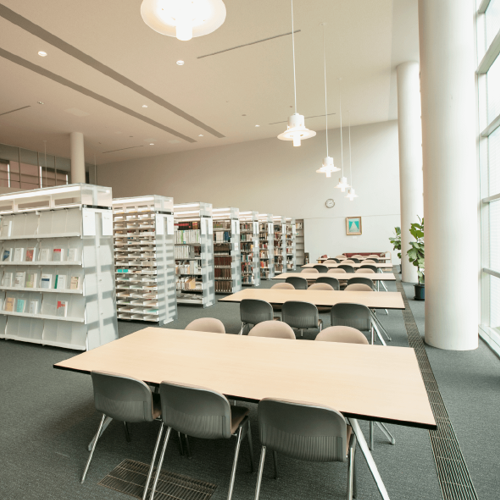 |
| Informatics | National Institute of Informatics |  |
| Statistical Science | The Institute of Statistical Mathematics |  |
| Particle and Nuclear Physics | Institute of Particle and Nuclear Studies |  |
| Accelerator Science | Accelerator Laboratory / Applied Research Laboratory |  |
| Astronomical Science | National Astronomical Observatory |  |
| Fusion Science | National Institute for Fusion Science |  |
| Space and Astronautical Science | Institute of Space and Astronautical Science |  |
| Molecular Science | Institute for Molecular Science |  |
| Materials Structure Science | Institute of Materials Structure Science |  |
| Global Environmental Studies | Research Institute for Humanity and Nature |  |
| Polar Science | National Institute of Polar Research |  |
| Basic Biology | National Institute for Basic Biology |  |
| Physiological Sciences | National Institute for Physiological Sciences | 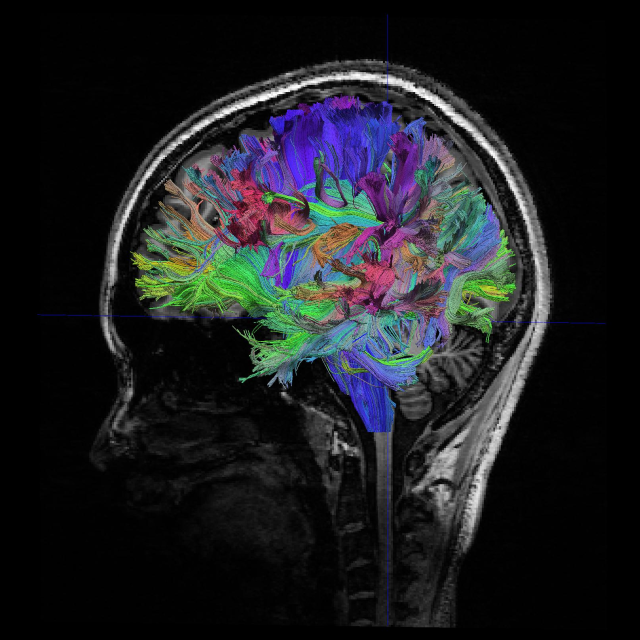 |
| Genetics | National Institute of Genetics | 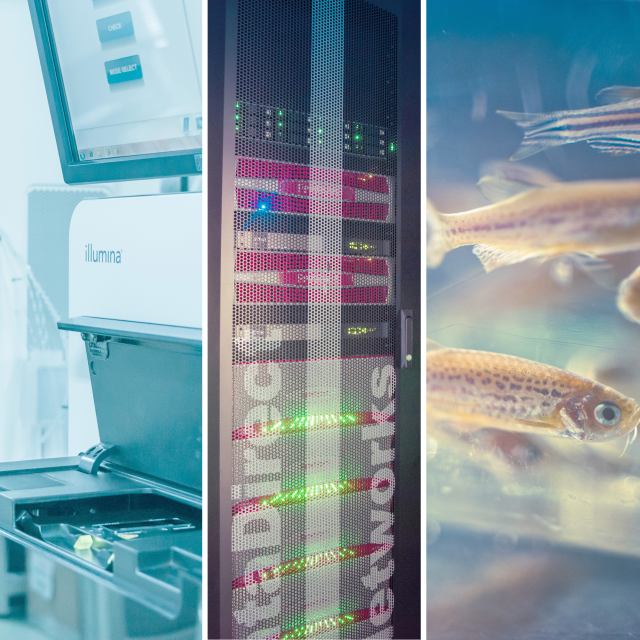 |
| Integrative Evolutionary Science | Research Center for Integrative Evolutionary Science |  |
Tailor-made education programs
Students can obtain credit flexibility and research supervision beyond the program framework, in conformity with their research themes.
SOKENDAI aims to nurture PhDs who can tackle complex issues under both a joint supervision system that promotes dissertation research at various parent institutes, and an international joint supervision system with universities abroad.
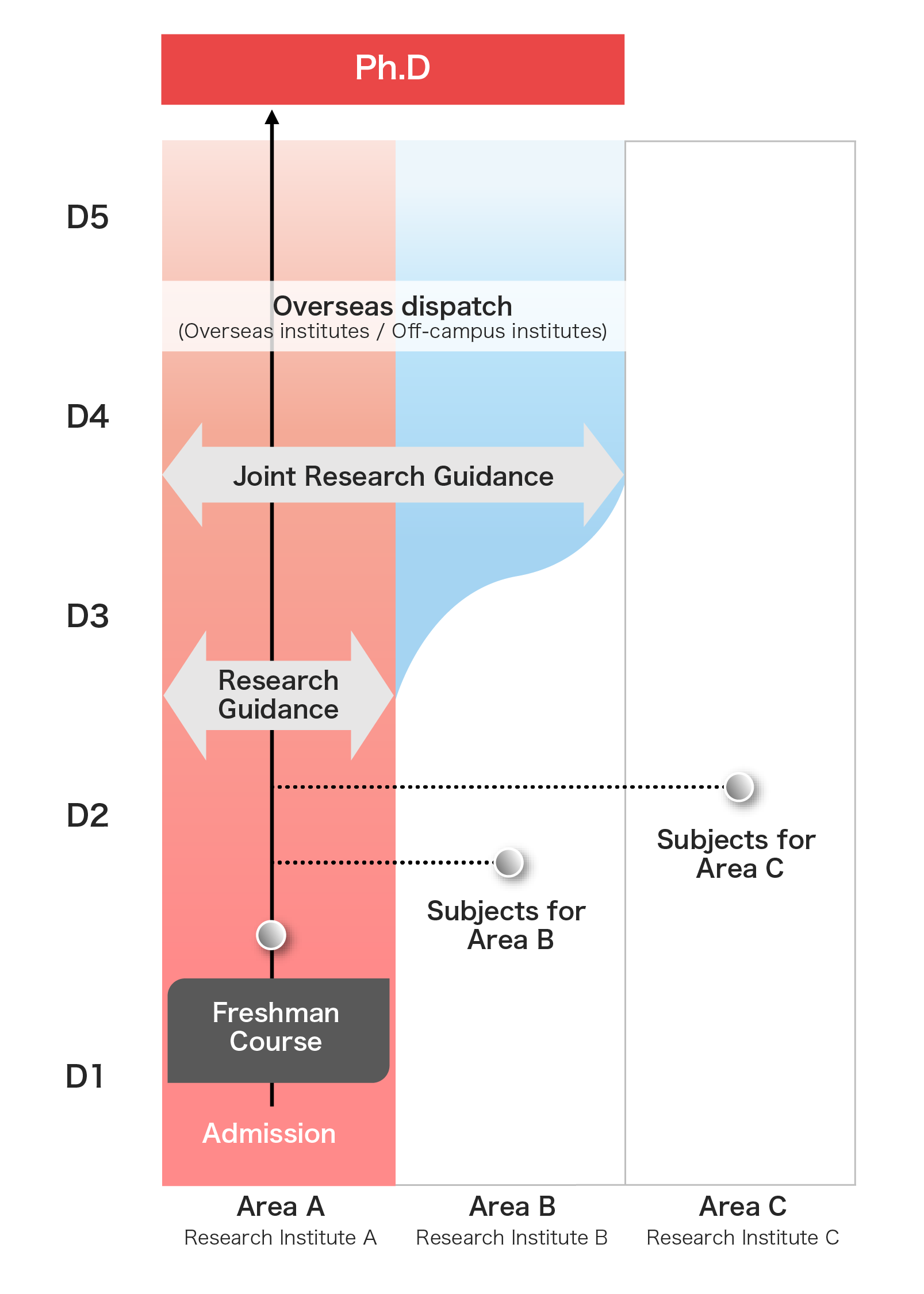
Introduction of Student Research
-
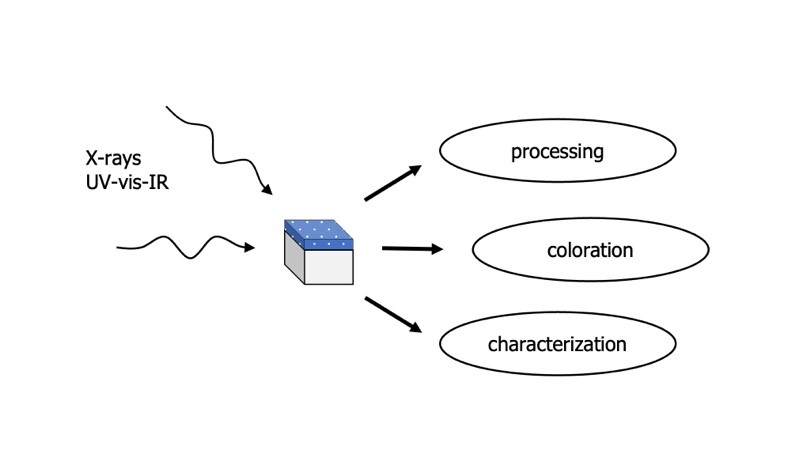
- Extracting insights on celadon glazes using light
- Angelo Perez RILLERA , Materials Structure Science
-

- Bayesian non-parametric inference for the ETAS model and method developments
- Yuanyuan Niu , Statistical Science
-
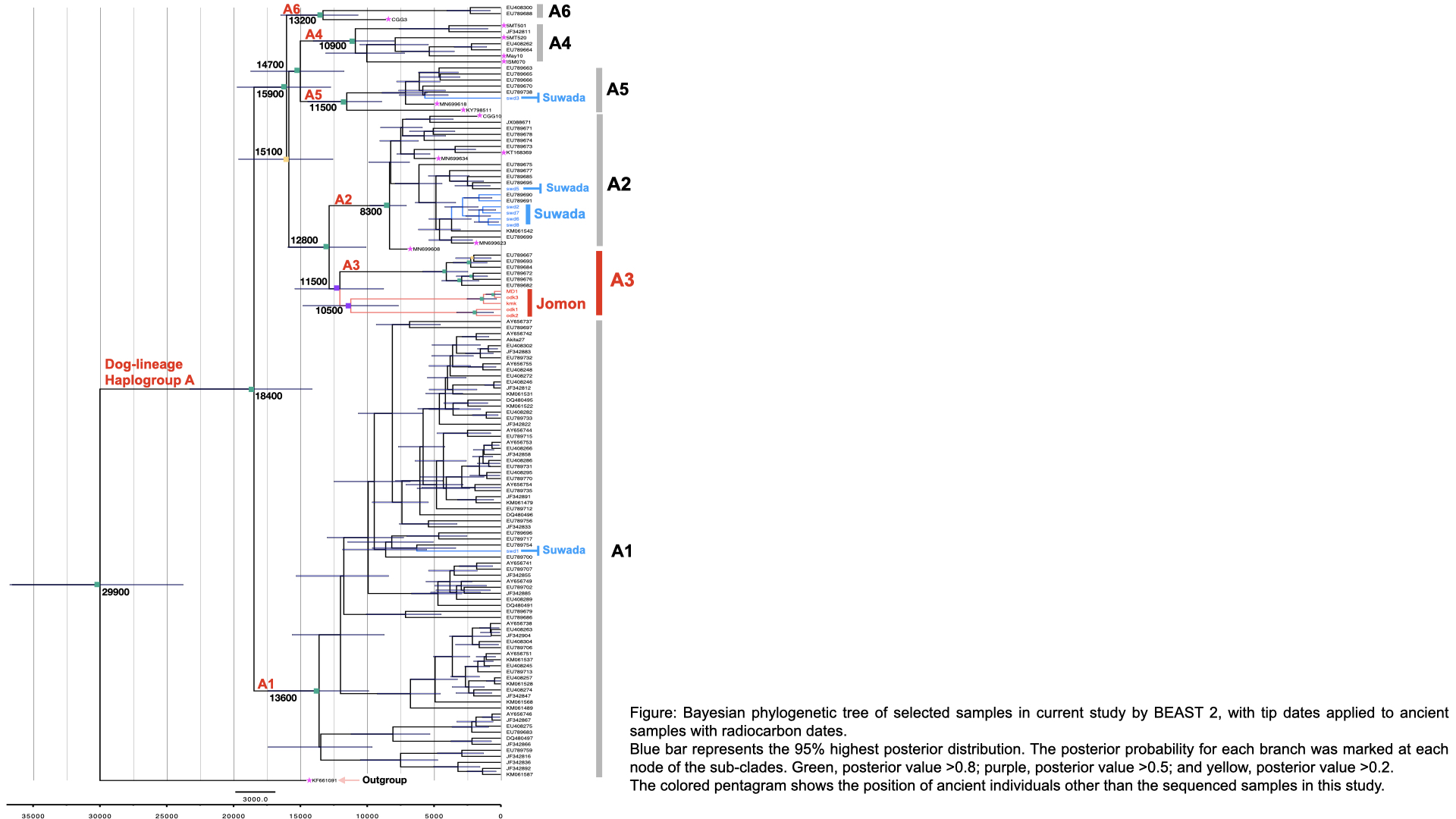
- Archaeogenetical study of domestic dog in East Asia
- XIAYIRE XIAOKAITI , Evolutionary Studies of Biosystems
-
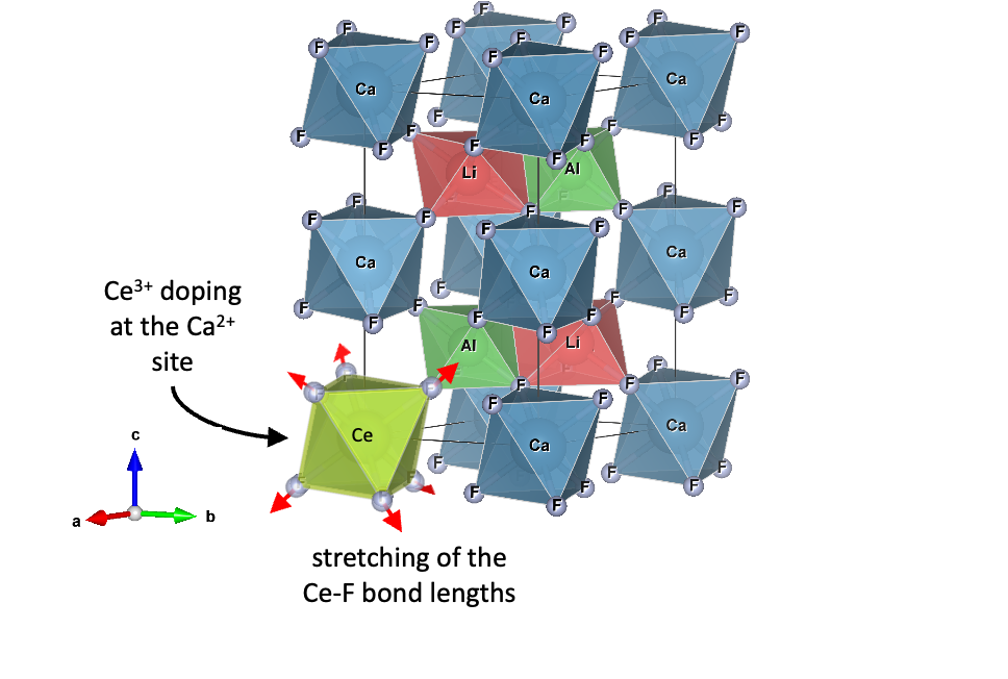
- Structural origin of anisotropy in the luminescence of ultraviolet laser crystals
- UY Mayrene Allam , Materials Structure Science
-
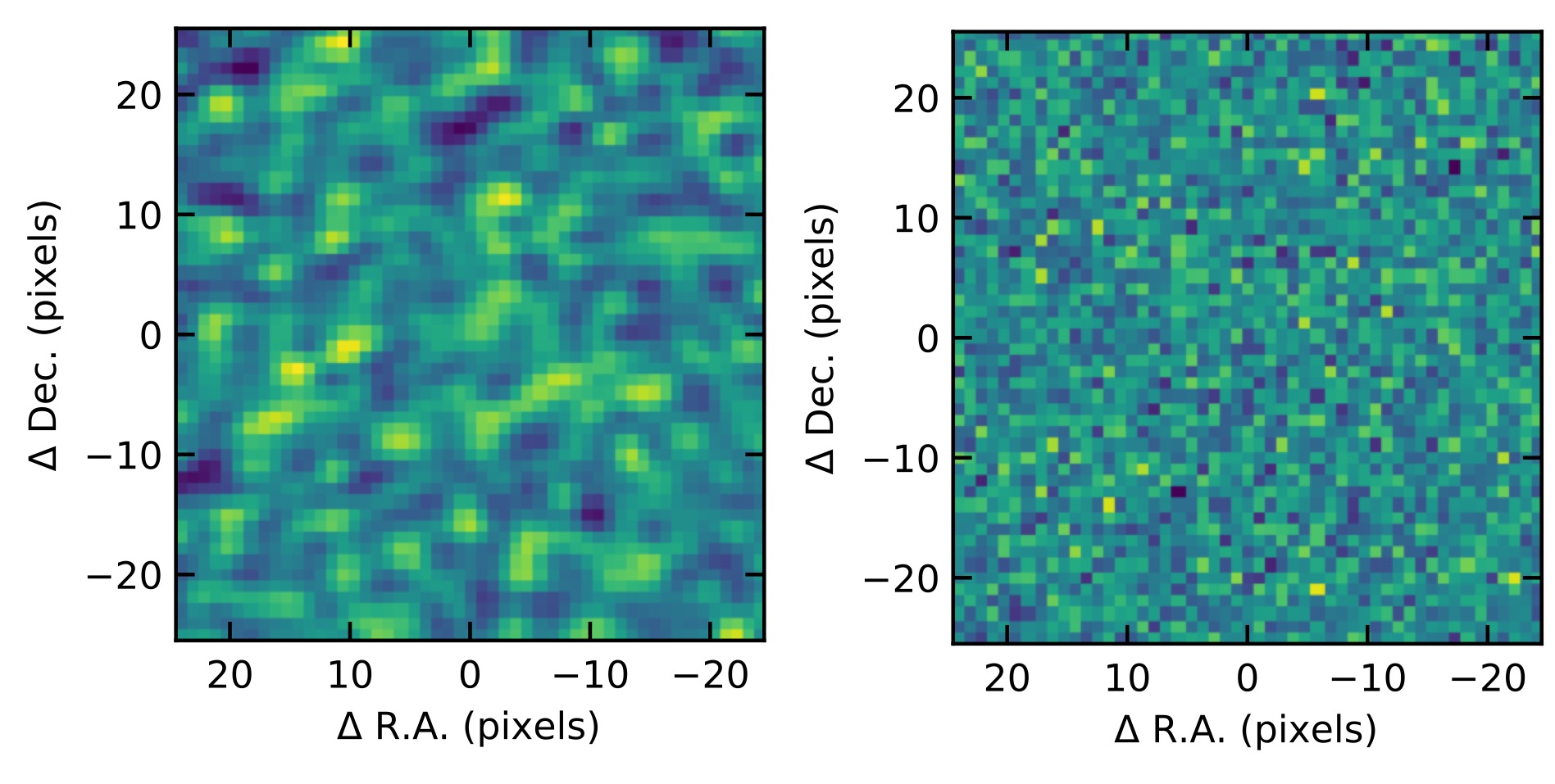
- Error analysis method under correlated noise in interferometric images
- Takafumi Tsukui(alumnus) , Astronomical Science
- Journal: Journal of Astronomical Telescopes, Instruments, and Systems
-
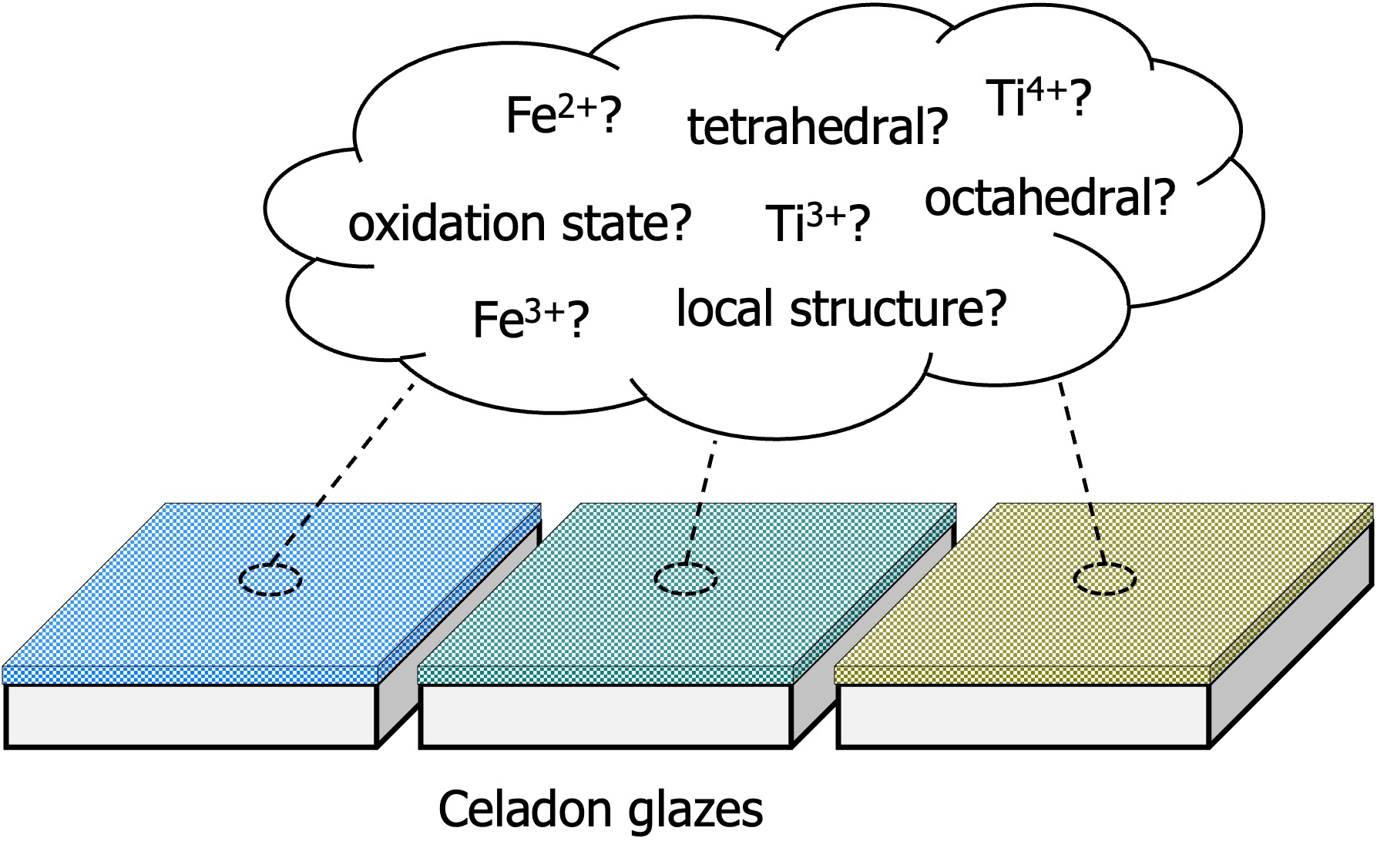
- How do celadon glaze colors develop?
- RILLERA Angelo Perez , Materials Structure Science
Student support
Financial support
SOKENDAI financially supports research activities of excellent students through the Research Assistant System, the Tuition Waiver System, and the SOKENDAI Special Researcher Program.
Research dispatch support
SOKENDAI supports students who engage in long-term joint research activities in Japan and abroad through the SOKENDAI Student Dispatch Program and the SOKENDAI Dual Degree Program.

Admission information/Inquiries
Admission Policy

What SOKENDAI expect of our grad students
The Graduate University for Advanced Studies, SOKENDAI, seeks students who have a strong interest in research, who constantly hone their abundant intellect and sensitivity with the aim of conducting research that will open up a new era, while taking a “bird’s-eye view” of the entire field of study, and who have the will and enthusiasm to be active on the international stage.

Basic policy for the selection of our grad students
In selecting students for admission, SOKENDAI places importance on basic academic ability and logical thinking ability to actively promote research in the cutting-edge 20 research institutes affiliated to SOKENDAI.
In order to properly judge such abilities, various selections will be made according to the respective fields of specialization.












